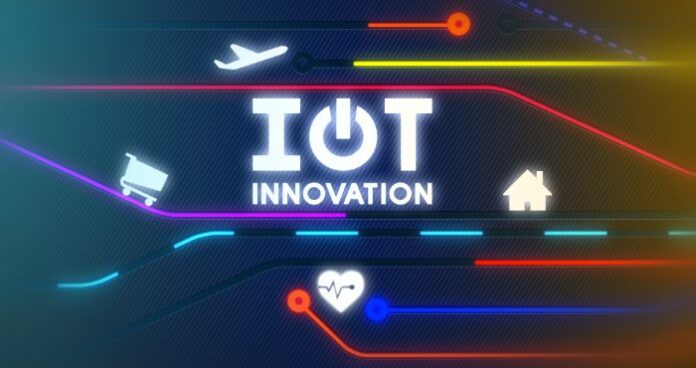How does US government IoT policy stack up with the rest of the world? According to IoT Pioneer Kevin Ashton, and other sources, US government lagging behind China, Germany, EU and soon to be S. Korea
America Last? is the title of an article Kevin Ashton published in July 2015, as part of a Politico “The Internet of What” special report, which went on to describe how woefully behind US politicians are in understanding the implications of IoT, much less taking steps to implement a cohesive strategy to keep the US at the forefront of innovation. See charts below.
In October 2014, IoT thought leader, Scott Amyx, published Internet of Things Needs Government Support in InformationWeek, which compared China, Germany, Britain and S. Korea national IoT programs to the non-existent US government IoT policies.
In May 2015, Brookings Institute published Federal agencies behind the curve: IoT and BYOD, stating that “The federal government is ignoring the IoT”. Below is quote from article:
“We found that IoT was not mentioned in a single plan. The failure of federal agencies to adopt new technologies is hard to defend because it can improve government’s ability to deliver services. IoT tools which monitor the health of a federal agency’s assets—buildings, roadways, data centers, and other infrastructure components—could reduce costs, optimize performance, and improve asset management. Moreover, IoT innovations can enable government entities to meet goals established for sustainability, for example traffic sensors could detect when traffic is all coming from one direction and change to green before cars slow down—improving fuel economy.”
In November 2015 at the PCIA 2015 HetNet Expo, the Wireless Infrastructure Association stepped up the Internet of Things (IoT) conversation by having industry analyst, Iain Gillott of iGR, host an IoT and HetNet panel (watch video on RCRtv). Panelists included Jeff Lund of Belden, Steve Steinhilber of Cisco and Bob Gessel of Ericsson. Additionally, PCIA CEO Jonathan Adelstein testified before the Senate Commerce Committee on October 7, 2015. The hearing, entitled “Removing Barriers to Wireless Broadband Deployment” was the second time Jonathan had testified before Congress in 2015.
Over the past couple of weeks, RCR Wireless News has reviewed China’s IoT program called Made in China 2025 and “Internet Plus”; Germany’s Industrie 4.0 plan for “smart factory” leadership using IoT; and the European Commission’s Horizon 2020 technology roadmap to invest €80 billion over seven years to create jobs, drive economic growth and ensure that Europe remains competitive on global scale.
While researching IoT national policy plans from around the world, it was clear that the US Government IoT policy is near non-existent. Tech publication, Arstechnica, noted in an article earlier this year that an Internet of Things Congressional Committee had been formed. See quote below:
“Now House members are attempting to tackle the biggest tech cliché of them all: the Internet of Things. Rep. Darrell Issa (R-CA) and Rep. Susan DelBene (D-WA) announced Tuesday the Congressional Caucus on the Internet of Things. It will be a group of lawmakers studying—you guessed it—the Internet of Things in a bid to help educate members “on the development of innovative technology and public policy in the Internet of Things’ space,” according to an e-mail from Issa’s office.”
Progress is being made, as evidenced by hearing in July 2015, whereby industry associations updated and educated the US Congressional Committee on the current state of IoT. Participants included:
- Mr. Gary Shapiro, President and CEO – Consumer Electronics Association
- Mr. Dean Garfield, President and CEO – Information Technology Industry Council
- Mr. Mitch Bainwol, President and CEO – Alliance of Automobile Manufacturers
- Mr. Morgan Reed, Executive Director – ACT | The App Association
- The Honorable Bob Goodlatte provided opening comments
US Industry (versus government) leading IoT charge
Thankfully, the void of US government IoT policy leadership is gradually being filled by industry leadership. For example, the Industrial Internet Consortium was formed in 2014 by founding members GE, Bosch, AT&T, IBM, Cisco and Intel. SAP and Schneider Electric recently joined consortium along with hundreds of other companies.
In this week’s episode of IoT Innovation, we interviewed Kathy Walsh from the Industrial Internet Consortium. Discussion areas included:
- IoT reference architecture
- Test Bed Overviews – beyond proof of concepts
- Future of Industrial Internet Consortium
- How does IIC work with standards and other IoT groups?
Watch IoT in America on IoT Innovation
National Tech Leadership – By the numbers
- China
- Population – 1.357 billion
- GNP – $10.36 trillion
- Made in China 2025; Internet Plus Strategy – Up to a trillion investment in technology. $200 billion in networks alone
- European Union
- Population – 503 million, third largest behind China and India
- GNP – $18.46 trillion
- Horizon 2020 – $86 billion over 7 years
- Germany
- Population – 81.7 million
- GNP – $3.853 trillion
- Industrie 4.0 rolls into Horizon 2020 – $215 billion
- United States
- Population – 316.5 million
- GNP – $17.42 trillion
- No cohesive IoT of 5G strategy; however, industry lead initiatives include Industrial Internet Consortium lead by GE, Bosch, ATT, Intel, Cisco and IBM
Charts from Kevin Ashton’s Politico article “America Last”
Watch all IoT Innovation Episodes, sponsored by Anritsu and Telecomcareers.

